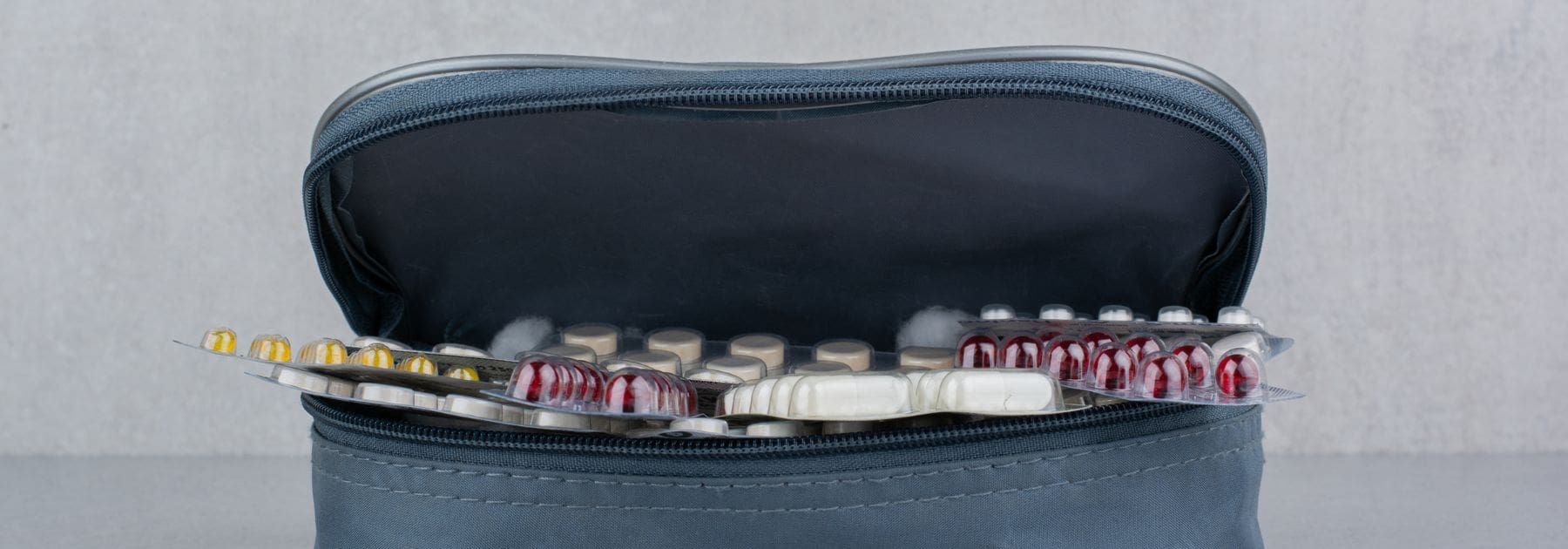Your Essential Guide to Anti-Malaria Tablets: Stay Protected When You Travel
If you’re planning a trip to a tropical or subtropical region, protecting yourself from malaria should be a top priority. One of the most effective ways to reduce your risk is by taking anti-malaria tablets, which are widely available through pharmacies like ours. But with multiple types of tablets, different dosing requirements, and region-specific risks, it can feel overwhelming to choose the right option.
In this blog, we’ll explore everything you need to know about anti-malaria tablets—from how they work to when you need them and where to get them.
What Is Malaria?
Malaria is a serious and sometimes fatal disease caused by a parasite transmitted through the bites of infected mosquitoes. Once in your body, the parasite infects your red blood cells and causes symptoms such as:
-
-> Fever
-
-> Chills
-
-> Muscle aches
-
-> Headaches
-
-> Vomiting and diarrhoea
If left untreated, malaria can become life-threatening—especially in children, pregnant women, and travellers with no prior exposure.
Which Countries Have a Malaria Risk?
You’ll need to consider anti-malaria tablets if you’re travelling to:
-
-> Sub-Saharan Africa
-
-> Parts of South and Southeast Asia
-
-> Central and South America
-
-> Some areas of the Middle East
-
-> Specific islands in the South Pacific
Before you travel, always check up-to-date guidance using resources like the Travel Health Pro website or speak to a pharmacist at your local travel clinic.
Types of Anti-Malaria Tablets
Several types of anti-malaria tablets are available. Each has its pros, cons, and region-specific suitability. Here are the most commonly prescribed options:
1. Atovaquone/Proguanil (Malarone)
-
-> Dose: Taken once daily
-
-> Start: 1–2 days before travel
-
-> Continue: For 7 days after leaving the risk area
-
-> Pros: Fewer side effects, short post-trip course
-
-> Cons: More expensive than other options
2. Doxycycline
-
-> Dose: Taken once daily
-
-> Start: 1–2 days before travel
-
-> Continue: For 4 weeks after leaving the risk area
-
-> Pros: Affordable, also protects against other infections
-
-> Cons: Can cause sun sensitivity and stomach upset
3. Mefloquine (Lariam)
-
-> Dose: Taken once weekly
-
-> Start: 2–3 weeks before travel
-
-> Continue: For 4 weeks after leaving the area
-
-> Pros: Weekly dosing
-
-> Cons: Potential for vivid dreams and rare psychiatric side effects
How to Choose the Right Anti-Malaria Tablets
Choosing the best anti-malaria medication depends on:
-
-> Your destination (some areas have drug-resistant malaria strains)
-
-> Your health status and medical history
-
-> How long you’ll be travelling
-
-> Your budget and preference for daily vs. weekly tablets
That’s why it’s important to consult with a pharmacist or travel health specialist. At Bourne End Pharmacy, our team can guide you through your options and issue a private prescription where appropriate.
Additional Ways to Prevent Malaria
Anti-malaria tablets are crucial, but they should be used alongside mosquito-avoidance strategies:
-
-> Sleep under mosquito nets (preferably insecticide-treated)
-
-> Apply mosquito repellent with DEET (at least 20–50%)
-
-> Wear long sleeves and trousers, especially in the evening
-
-> Stay in air-conditioned or well-screened accommodation
This combined approach gives you the best chance of staying protected.
Where Can I Get Anti-Malaria Tablets Near Me?
You can book a travel health consultation at Bourne End Pharmacy, where we’ll assess your destination, medical history, and travel plans before recommending the most appropriate anti-malaria tablets.
We offer:
-
-> Fast, same-day appointments
-
-> In-clinic consultations with trained professionals
-
-> Private prescriptions for malaria prevention
-
-> Travel vaccine planning and advice
Simply book online or give us a call to get started.
Common FAQs About Anti-Malaria Tablets
Q: Do I really need malaria tablets for a short trip?
Yes—mosquitoes don’t care how long you’re visiting. Even a weekend in a malaria-risk zone warrants protection.
Q: Can I get anti-malaria tablets over the counter?
No. In the UK, they’re available through pharmacies with a private prescription after a short consultation.
Q: What if I forget a dose?
Take it as soon as you remember, unless it’s almost time for your next dose. Consistency is key for full protection.
Don’t Leave Without Protection
Malaria is a preventable disease—but only if you take the right precautions. Before your next adventure, make sure to book a travel health consultation at Bourne End Pharmacy and find the anti-malaria tablets that best suit your needs.
Stay safe. Stay informed. Travel well.
This blog was written on behalf of Bourne End Pharmacy by Pharmacy Mentor.



